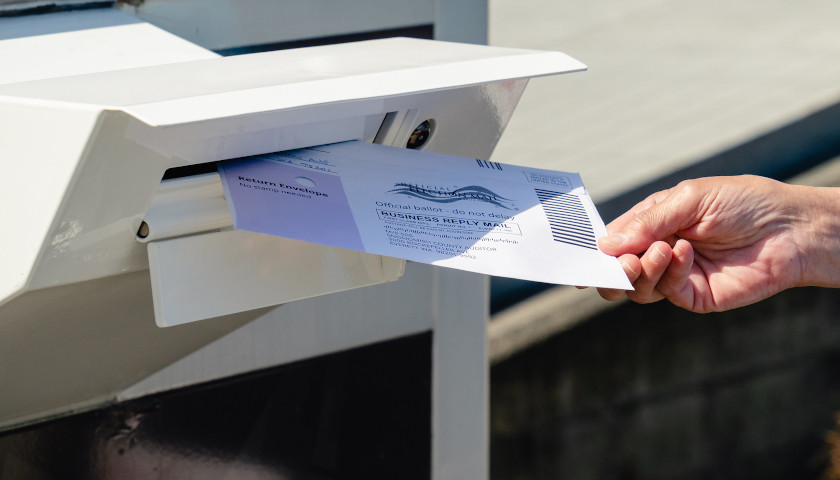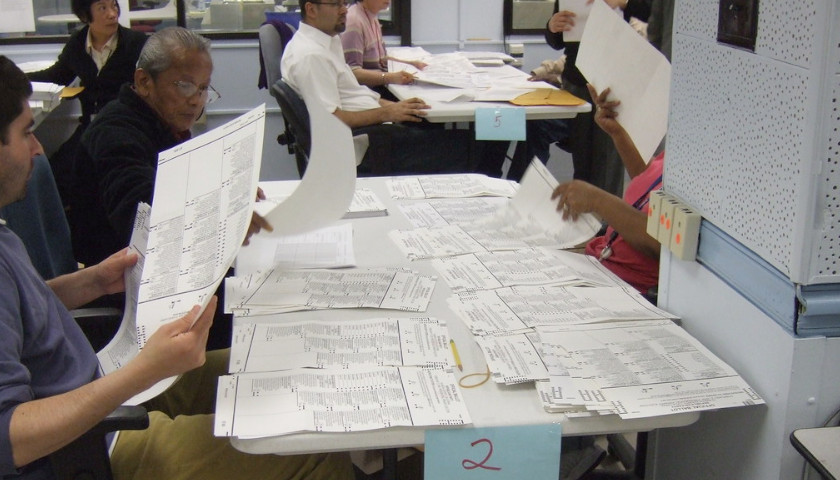The Georgia State Election Board voted to extend the absentee ballot voting rules on the use of drop boxes and early processing. Leading up to the January 5 general election runoff, voters may continue to deliver their absentee ballots at drop boxes and officials must begin processing ballots at minimum a week before Election Day.
Georgia Secretary of State Brad Raffensperger chaired Monday’s meeting. The board gathered to discuss three emergency rules set to expire prior to the runoff election, though they opted to only address the first two on their agenda.
The emergency rule establishing the drop boxes was declared in April ahead of the primaries. The drop boxes are monitored 24/7 by cameras, and the video recordings are retained by elections officials for 30 days after the election.
Several months ago, the Southern Poverty Law Center (SPLC) announced that it funded an additional 25 drop boxes for Fulton County.
Shortly after the primaries, the board extended the rule allowing drop boxes for the general election. They also added another emergency rule allowing elections officials to undertake early processing of absentee ballots.
Both emergency rules were set to expire a few days before the January 5 election. The board’s rationale on Monday was to extend those rules through February 5 to simplify the election’s procedures.
Originally, early processing for absentee ballots was optional and began two weeks before Election Day. The board voted on Monday to mandate early processing a week before Election Day, but officials have the option to begin up to two weeks before January 5.
The board stated that without this provision, it would take “weeks” to process the absentee ballots.
Then, the board opted not to address concerns over residency requirements. Georgia Attorney General Christopher Carr advised the board that residency rules should be reserved as an official election bulletin because that is authority the election officials may exercise already.
Last week, Raffensperger warned that anyone who intended on establishing residency temporarily just to vote in the runoff election would face fines and prison time.
However, Georgia Governor Brad Kemp urged Raffensperger to strengthen election procedures after both men officially certified the state’s voting results.
It appears that the Georgia Code grants authority to the board to extend these rules past their expiration date. The code states that the board has the authority to “formulate, adopt, and promulgate rules and regulations, consistent with law, as will be conducive to the fair, legal, and orderly conduct of primaries and elections.” Also within their duties exists the ability to make recommendations to the General Assembly for “the conduct and administration” of elections.
It is unclear how this authority applies to the consent decree, an agreement signed earlier this year by Raffensperger and the Democratic Party. Attorney Lin Wood filed suit against Raffensperger, stating that Raffensperger and the board lacked the authority to modify election law by adding language to the code.
Although the judge dismissed the case, citing Wood’s lack of standing, Wood stated that he would appeal the ruling.
Early in-person voting for the runoff election begins December 14.
– – –
Corinne Murdock is a reporter at The Georgia Star News and the Star News Network. Follow her latest on Twitter, or email tips to [email protected].
Photo “Mail in Ballots” by Cindy Shebley. CC BY 2.0.





